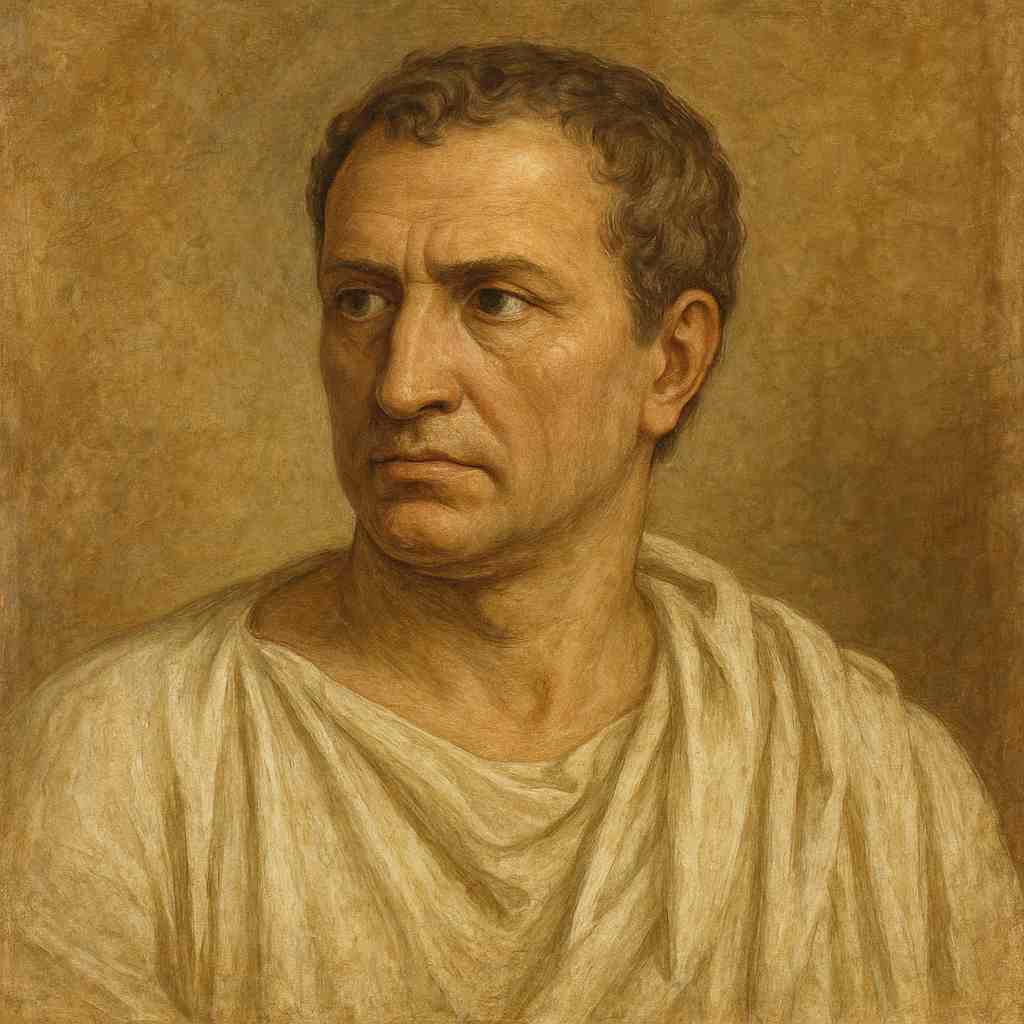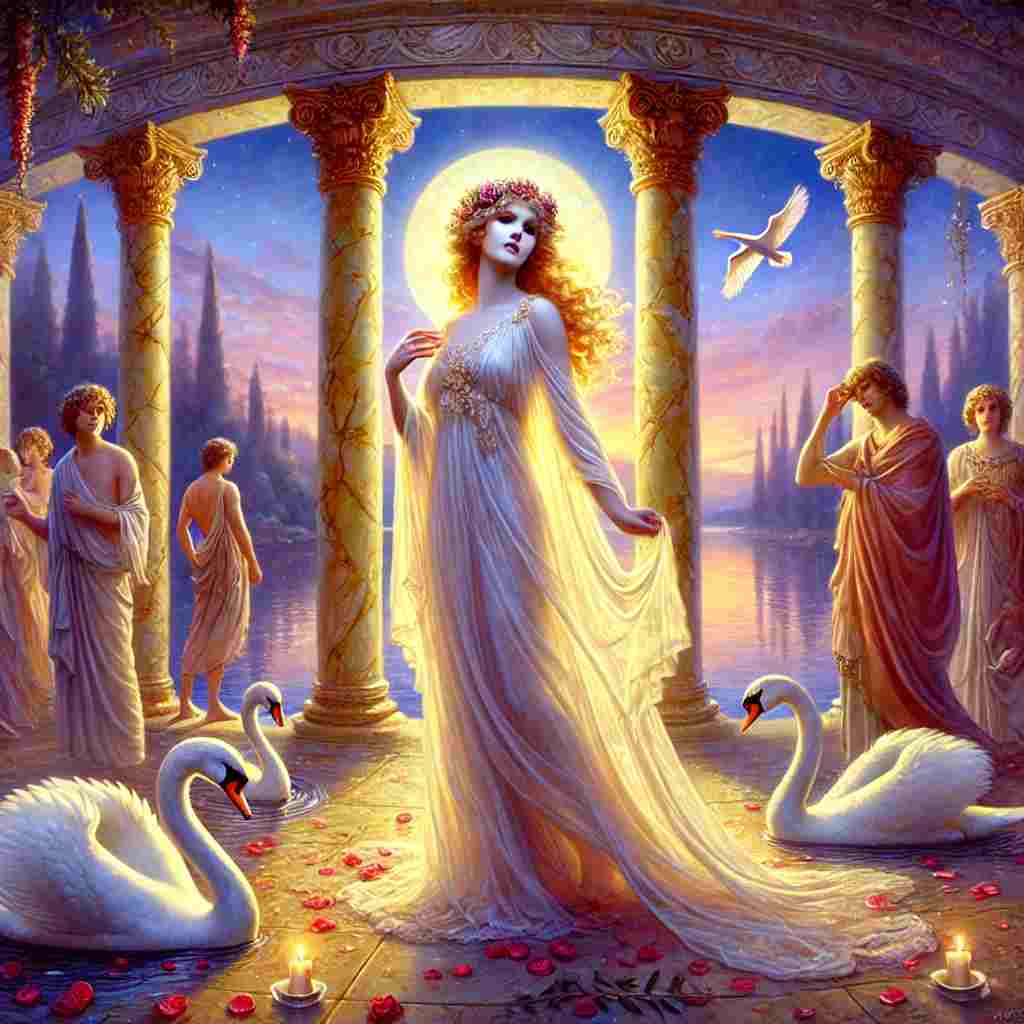2 Poems by Quintus Horatius Flaccus
65 BCE - 8 BCE
Quintus Horatius Flaccus Biography
Quintus Horatius Flaccus, better known as Horace, was born on December 8, 65 BCE, in Venusia, a small town in southeastern Italy. Known for his lyrical brilliance and philosophical wit, Horace grew into one of the most influential poets of the Augustan Age, a time marked by political upheaval, cultural renaissance, and the patronage of Emperor Augustus himself. Though Horace’s poetry encapsulates the splendor of Rome’s cultural rise and the philosophical values of his time, his work also reflects universal themes, such as the pursuit of contentment, the fleeting nature of life, and the subtle virtues of moderation. With an oeuvre comprising of works like the Odes, Satires, and Epistles, Horace stands as a literary figure who mastered the fusion of personal reflection and broader social commentary. His works continue to resonate for their elegance and insight into human nature.
Horace's early life was modest, a fact he would later reflect upon with a sense of gratitude. His father, a freed slave who worked as a coactor or tax collector, aspired to provide his son with the best possible education. Despite their humble circumstances, Horace’s father invested considerable resources in sending him to Rome to study under the finest teachers. Horace’s upbringing in Venusia also instilled in him a respect for rural life and simple pleasures, themes that would later emerge in his poetry as he extolled the virtues of a pastoral existence over the excesses of urban Rome. His father's devotion and prudence became central pillars in Horace’s moral outlook, and he often celebrated these virtues in his work, eschewing the superficial status symbols prized by many in the Roman elite.
When Horace reached adulthood, he traveled to Athens to study philosophy, particularly aligning himself with the teachings of Epicureanism. In Athens, Horace encountered an atmosphere charged with intellectual and political fervor, as young Romans were immersed in studying Greek culture while also witnessing the escalating power struggles that marked the fall of the Roman Republic. This philosophical training deeply influenced his literary outlook, particularly the Epicurean ideals of seeking inner peace and avoiding the pains of public life. He studied alongside young Romans of similar ambition and would eventually come into the orbit of Marcus Junius Brutus, one of Julius Caesar’s assassins.
In 44 BCE, after Caesar’s assassination and the subsequent rise of the Liberators’ army, Horace joined Brutus as a military tribune. Though the experience was brief—Brutus’ forces were defeated at the Battle of Philippi in 42 BCE—it had a lasting impact on Horace. Not only did he survive the defeat, but he also experienced the disillusionment of Rome’s turbulent political realm. These years of civil unrest reinforced Horace’s wariness toward political ambition and the seductive allure of power, shaping his conviction in pursuing a life of moderation and self-reflection. Horace returned to Rome impoverished, his family estates confiscated, and he took up a post as a scribe in the treasury—a fortunate appointment that provided him financial stability and, more importantly, time to cultivate his writing.
Horace began his literary career with the Satires, a collection in which he employs a conversational style to address topics as varied as friendship, ambition, and the absurdities of daily life. The Satires are deeply personal and philosophical, bearing the influence of Lucilius, the father of Roman satire, whom Horace admired for his irreverent and incisive commentary. Through these satirical works, Horace established a literary persona that was simultaneously self-deprecating and sagacious. His voice was one of moderation, balancing a subtle critique of societal pretensions with an affection for the quirks of human nature. He championed the Epicurean notion of aurea mediocritas, or the “golden mean,” which advocated for a life of moderation over the endless pursuit of wealth and power.
It was around this time that Horace’s talent attracted the attention of Gaius Maecenas, a wealthy advisor to Augustus and an influential patron of the arts. Maecenas’ patronage marked a pivotal moment in Horace’s career, allowing him the freedom to write without financial constraints and introducing him to Rome’s intellectual elite. Under Maecenas’ patronage, Horace’s poetry evolved in both style and substance, as he began to craft works that spoke not only to personal themes but also to the ideals of the newly emerging Roman Empire. Maecenas gifted Horace a small estate in the Sabine Hills, a rural retreat where the poet could write in peace, away from the bustle of Rome. This idyllic setting was essential to Horace’s creative process, and he often expressed a deep love for his country life, finding in nature both solace and inspiration.
In his Odes, published in four books over a span of two decades, Horace elevated Latin poetry to a new level of sophistication. Inspired by the lyric tradition of Greek poets like Pindar, Sappho, and Alcaeus, Horace crafted his Odes with precision, melding personal reflection with universal appeal. Each poem in the Odes is a masterwork of form, carefully measured and imbued with themes of love, friendship, nature, and the inevitability of death. His famous phrase “carpe diem” (“seize the day”), from Ode 1.11, embodies a call to live fully in the present, a sentiment that reflects both Epicurean wisdom and Stoic acceptance of life’s impermanence. In this line and others, Horace invites readers to find joy in the transient, valuing the present over an uncertain future.
The Odes also reflect Horace’s allegiance to Augustus’ vision for Rome. While he carefully avoided overt political propaganda, his poems often resonated with Augustus’ call for a return to traditional Roman virtues. Horace portrayed Augustus as a stabilizing force and champion of Roman greatness, subtly aligning his own artistic vision with the new empire. This alignment, however, was not without nuance. Horace remained cautious about power’s corrupting potential, often advocating for simplicity and humility over imperial grandeur. His praise of Augustus was tempered by his broader reflections on the vanity of human pursuits, maintaining a balance between personal philosophy and political allegiance that enhanced his stature as Rome’s unofficial poet laureate.
In his Epistles, Horace further refined his philosophical musings, adopting a more reflective tone as he addressed themes of friendship, wisdom, and the pursuit of happiness. The Epistles are notable for their conversational style, through which Horace shares his hard-won insights with friends and fellow writers. These letters encapsulate his lifelong commitment to the principle of sapientia—the cultivation of wisdom. They explore the balance between duty and pleasure, the value of inner peace, and the complexities of human relationships. His famous Ars Poetica, included among the Epistles, remains one of the most influential treatises on literary criticism, offering guidance on the art of poetry that would influence writers from Virgil to the Renaissance poets.
Though often celebrated as a proponent of Epicureanism, Horace’s philosophical stance was complex, drawing from various traditions while resisting rigid categorization. His work reveals Stoic elements, particularly in his acceptance of fate and his advocacy for self-control and resilience. While he admired the Epicurean ideal of ataraxia—a serene state free from distress—he also valued Stoic discipline, finding in it a path to a life of integrity and purpose. This blend of philosophies allowed Horace to craft a voice that was uniquely his own, oscillating between lighthearted wit and serious reflection, always grounded in a keen understanding of human nature.
Horace died in 8 BCE, leaving behind a legacy that would profoundly shape the course of Western literature. His influence on poetry, particularly the lyric form, endured through the centuries, inspiring poets from the Middle Ages to the Enlightenment and beyond. The Renaissance poets, including Petrarch and Milton, looked to Horace as a master of balanced, elegant verse, while his philosophy of moderation resonated deeply in a world often captivated by extremes. His stylistic precision and thematic subtlety served as models for later poets, who admired his ability to convey profound truths through carefully measured language.
More than two millennia after his death, Horace’s poetry continues to engage readers with its timeless insights and aesthetic grace. His exploration of life’s simple pleasures, his warnings against ambition, and his celebration of friendship and love remain deeply relevant, offering wisdom to those who, like Horace, seek balance in an often tumultuous world. Horace’s legacy endures not only because of his mastery of form but also because of his capacity to speak across time, reminding readers to cherish the present, to live thoughtfully, and, above all, to embrace the beauty in life’s fleeting moments.
This text was generated by AI and is for reference only. Learn more
Username Information
No username is open
Everything is free to use, but donations are always appreciated.
Quick Links
© 2024-2025 R.I.Chalmers (V2Melody).

All music on this site by R.I.Chalmers (V2Melody) is licensed under a Creative Commons Attribution-NonCommercial 4.0 International License.
Attribution Requirement:
When using this music, you must give appropriate credit by including the following statement (or equivalent) wherever the music is used or credited:
"Music by R.I.Chalmers (V2Melody) – https://v2melody.com"
Support My Work:
If you enjoy this music and would like to support future creations, your thanks are always welcome but never required.
Thanks!



